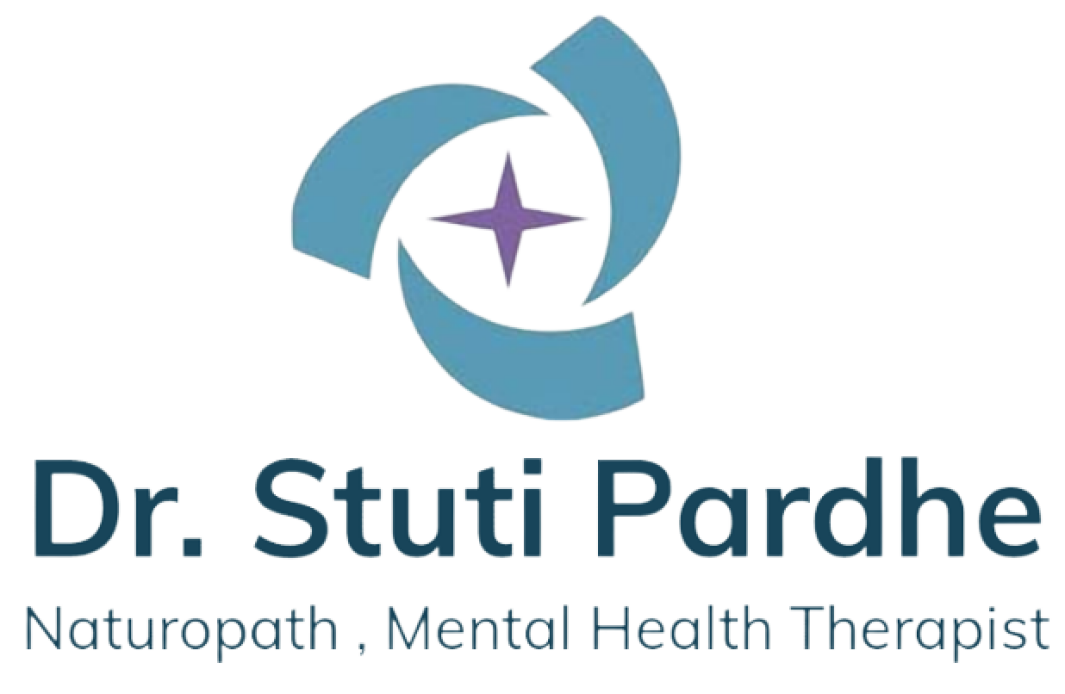
The precise reason I chose ‘Naturopathy’ was with an initiative to bring healing to my patients using ‘nature’ at its best. ‘Nutritional Psychiatry’ is the talk of the day because in this 21st century it is realized that mental disorders and swift urbanization has become an alarming concern globally. The relationship between brain function, nutrition and diet and the risk of mental disorders have become an intense concern of research over the past few years. It is scientifically known that the human brain utilizes large proposition of nutrient intake and body’s energy, and thus operate at a high ‘metabolic rate’.
The inter/intra cellular communication of the brain is highly dependent upon fats, vitamins, minerals, amino acids and trace elements. Phytochemicals and nutrient cofactors provide the support to operate the antioxidant defense system, which is particularly significant to the subject of psychiatry. In a nutshell, it can be said that nutrition plays a significant role in the life of a human, and especially when it concerns the general emotional well-being and ‘neuro-psychiatric’ disorders. In the past, unfortunately, nutrition suffered a lack of traditional attention due to poor research and compromised interpretation.
The objective of my article is to create awareness about ‘Nutritional Psychiatry’ that can help individuals to consider also the alternative form of healing from the various emotional and psychiatric disorders.
Feeding Brain with the Best Nutrition
It will be totally fair to say that, ‘the food we eat affect the way we feel’. Serotonin, a neurotransmitter, is significant in regulating our appetite, sleep, moods and pain. Our gastrointestinal tract produces 95% of serotonin as it is lined with hundred million neurons, and nerve cells. Therefore, it makes complete sense that the inner working of our digestive system not only digest the food we eat but also regulate the emotions and guides the function of neurons in the production of important neurotransmitters such as serotonin; which also influences and impacts a billion of ‘good bacteria’ that make up the human ‘intestinal microbiome’. A bacterium plays a crucial role in human health, by protecting the lining of our intestines, and it provides a good barrier to fight against the bad bacteria and the toxins or inflammation. Additionally, it also improves the absorption of nutrients from the food consumed and activates neural pathways which travel directly between the human brain and the gut.
Research studies have claimed people taking probiotics or supplements which contain good bacteria to improve their perception of stress, anxiety levels and mental outlook. It is also studied that the traditional diet typically the Japanese and Mediterranean diet have lowered the risk of depression by 25-35% than the normal western diet which includes a lot of refined and processed food including sugars and artificial foods.
Nutritional Diet – Future Healing Agent
Discussing nutritional diet, we will agree that today our diet includes a lot more processed food which is far from being organic, and we look out for quick fix lunches and dinners. This attitude of quick fix lunches and dinners deprive us of important nutritional value which also include zinc, magnesium, omega 3, vitamins B and D3 which play an important role in improving mood, relieving depression and anxiety, and improving the mental capacity of individuals with Alzheimer’s and Dementia.
All the above-mentioned minerals and vitamins offer a great way to assist in the stressful life we live and experience. Unfortunately, medical education eliminates nutritional knowledge associated with disease. This leads to incomplete information passed on to the patients and their caregivers, who are ignorant about the importance of nutrition and the role it plays in healing any kind of disorder naturally.
Thanks to the many research scholars who are working hard to conduct various clinical trials on patients who are kept on value nutritional diet and therapies to heal from psychiatric disorders. Studies confirm the importance of adjunctive nutritional treatments for mental disorders, understanding the biological mediation in observing the relationship between nutrition, diet and mental health.
Building Trust with Nutritional Psychiatry
Unfortunately, due to overwhelming trust on the pharmaceutical and drug industry, has unfortunately crippled and blindfolded consumers towards the easiest healing approach that is found in the form of ‘Nutritional Psychiatry’. We in the 21st century are now evolving back to the ancestral times when only ‘Nutrition’ was responsible in maintaining the healthy balance of an individual. In recent years, thanks to the awareness created by many nutritional experts and research scholars who are taking special training to learn about the effects and impact of nutrition on human body. Additionally, it is also observed that the love for organic food is revived among many individuals who have learned and experienced the difference of living on a healthy nutritious organic diet that acts as an alternative healing medium for the body as supposed to the dependency on fast foods or quick fix lunches and dinners which are supposedly full of sugars and artificial in its many forms. The rise of deadly diseases such as various forms of cancer, mental disorders and many other infections are caused due to ignorant dependency on tasty foods which work as killing agents in our body.
To conclude this article, I would therefore like to encourage readers to consider ‘taking a proper nutritional balanced diet’ that will work to not only provide you with pure nutritional value but also will work wonders in keeping your heart, mind and soul happy. We have nature at our exposure, using natural minerals, resources and vitamins can promise us a healthy life for self and our family members.
References
Cavaye, J. (n.d.). Why nutritional psychiatry is the future of mental health treatment. [online] The Conversation. Available at: http://theconversation.com/why-nutritional-psychiatry-is-the-future-of-mental- health-treatment-92545 [Accessed 9 Jul. 2019].
Firth, J., Marx, W., Dash, S., Carney, R., Teasdale, S., Solmi, M., Stubbs, B., Schuch, F., Carvalho, A., Jacka, F. and Sarris, J. (2019).The Effects of Dietary Improvement on Symptoms of Depression and Anxiety. Psychosomatic Medicine, [online] 81(3), pp.265-280. Available at: https://journals.lww.com/psychosomaticmedicine/Fulltext/2019/04000/The_Ef fects_of_Dietary_Improvement_on_Symptoms_of.7.aspx.
Jacka, F. (2017). Nutritional Psychiatry: Where to Next?. EBioMedicine, [online] 17, pp.24-29. Available at: https://www.ncbi.nlm.nih.gov/pmc/articles/PMC5360575/.
Logan, A. and Jacka, F. (2014).Nutritional psychiatry research: an emerging discipline and its intersection with global urbanization, environmental challenges and the evolutionary mismatch. Journal of Physiological Anthropology, [online] 33(1). Available at: https://www.ncbi.nlm.nih.gov/pmc/articles/PMC4131231/.
MD, E. (2015). Nutritional psychiatry: Your brain on food – Harvard Health Blog. [online] Harvard Health Blog. Available at: https://www.health.harvard.edu/blog/nutritional-psychiatry-your-brain-on- food-201511168626 [Accessed 9 Jul. 2019].
